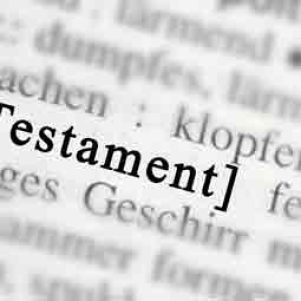The European Certificate of Succession, introduced by the European Parliament Regulation of 4 July 2012 on successions of people having interests, properties, and descendants in various countries, is an authentic document issued by a notary (in Spain), certifying the capacity of an heir and the powers of any executors or administrators of a succession in the context of international successions. The certificates will apply to opened inheritances concerning deaths that have occurred on or after 17 August 2015 (Transitional provisions contained in Article 83).
In particular, the European Certificate of Succession issued under the present Regulation constitutes a valid document for the inscription of succession properties in the corresponding register of a Member State. This should not prevent authorities in charge of the registration from requesting the person demanding the registration to provide all the additional information or documents required under the law of the Member State in which the register is located.
The regulation designates that only one law regulates the entire succession: the one of the State in which the deceased had his or her habitual residence at the time of death. Nonetheless, to determine which law is applicable, an evaluation of all the circumstances of the decedent’s life is carried out concerning the State: the duration and regularity of his or her presence, conditions and reasons for his or her presence, and the link to the State concerned.
The people affected by a European Certificate of Succession
The Certificate is for use by heirs, legatees having direct rights in the succession and executors of wills or administrators of an estate who, in another Member State, need to invoke their status or exercise their respective rights as heirs or legatees and/or their powers as executors of wills or administrators of an estate.
The interest of a European Certificate of Succession
The Certificate is intended to be used in an EU Member State other than the country where the Certificate was issued. Even though it is not mandatory and it does not substitute other documents used for similar purposes in the Member States, it has two main advantages, which are also its main aims: to certify the capacity of an heir over the entire EU territory and to certify the powers of any administrators of succession on that same territory.
The Certificate may be used, in particular, to demonstrate one or more of the following:
- the status and/or the rights of each heir or, as the case may be, each legatee mentioned in the Certificate and their respective shares of the estate;
- the attribution of a specific asset or specific assets forming part of the estate to an heir(s) or, as the case may be, the legatee(s) mentioned in the Certificate;
- the powers of the person mentioned in the Certificate to execute the will or administer the estate.
How to obtain a European Certificate of Succession
In Spain, the competent authority to issue this document is a notary, when all the elements are established.
The contents of the application for a European Certificate
The application shall usually contain the information listed below, whenever possible (if such information is within the applicant’s knowledge) and if the information is necessary to enable the issuing authority to meet the demand of certification:
- Details concerning the deceased, the spouse or partner of the deceased (and, if applicable, ex-spouse(s) or ex-partner(s)), the applicant and his or her representative, but also concerning other possible beneficiaries under a disposition of property upon death and/or by operation of law;
- The intended purpose of the Certificate
- The elements on which the applicant bases, as appropriate, his or her claimed right to succession property as a beneficiary and/or his or her right to execute the will of the deceased and/or to administer the estate of the deceased;
- An indication of whether the deceased had made a disposition of property upon death;
- The contact details of the court or other competent authority which is dealing with or has dealt with the succession, if applicable;
- An indication of whether the deceased had entered into a marriage contract or into a contract regarding a relationship that may have comparable effects to marriage; if neither the original nor a copy of the contract is appended, an indication regarding the location of the original;
- An indication of whether any of the beneficiaries has made a declaration concerning acceptance or waiver of a succession;
- A declaration stating, to the applicant’s best knowledge, that no dispute is pending relating to the elements to be certified;
- Any other information which the applicant deems useful for the issuance of the Certificate.
The effects of a European Certificate of Succession
The Certificate shall be effective in all the Member States, without any special procedure being required.
The person mentioned in the Certificate as heir, legatee, executor of the will or administrator of the estate shall be presumed to have all the rights, status or powers mentioned in the Certificate itself.
Any person who makes payments or passes on the property to a person mentioned in a Certificate as authorized to accept payment or property shall, if acting based on the information certified in the Certificate, be considered to have transacted with a person with authority to accept payment or property unless that person knows that the contents of the Certificate are not accurate or is unaware of such inaccuracy due to serious negligence.
When a person authorized to dispose of succession property as mentioned in a Certificate disposes of such property in favour of another person, that other person shall, if acting based on the information certified in the Certificate, be considered to have transacted with a person with authority to dispose of the property concerned unless that other person knows that the contents of the Certificate are not accurate or is unaware of such inaccuracy due to gross negligence.
The Certificate shall constitute a valid document for the recording of succession property in the relevant register of a Member State.
The limits of a European Certificate of Succession
The European Certificate of Succession shall apply all over the EU territory except in the UK, Denmark and Ireland (as indicated in paragraphs 82 and 83).
Moreover, as previously indicated at the beginning of the article, a Certificate can be established only for estates opening on or after 17 August 2015.
The European Certificate of Succession, therefore, appears as a very interesting approach for people having interests, properties and descendants in diverse Member States of the EU. Nonetheless, its implementation can be complex. Therefore, it is recommended to rely on legal counsel to prepare the application.
Laura Chetail & Nicolás Melchior
For further information regarding the European Certificate of Succession,





